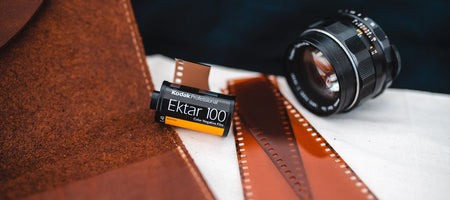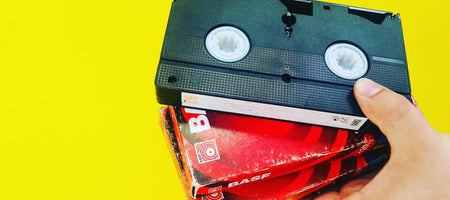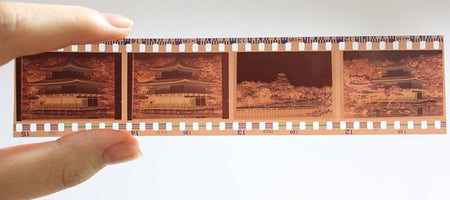Let’s say Grandma’s birthday is right around the corner — and you know exactly what you want to do to celebrate. In addition to prepping your delicious, family-renown pineapple cake, you want to plan a special movie night.
There’s that one video — you know, the one of Grandma wearing her disco pants, dancing with you in the kitchen when you were three, cursing expletives at the cookies she accidentally burned in the oven while distracted by the sweet voice of Elvis — and you can’t wait to show it to her! You’re going to buy your soon-to-be 94-year-old role model a new fabulous pair of disco pants, make cookies (but not burnt this time), play Elvis on vinyl, and ask Grannie for a dance.
But wait.
It’s two days before the big day, and when you dig up the film, just to make sure everything is working properly… It’s not. The tape is totally fried. Won’t work at all. The audio sputters, the visuals jolt around, and static numbs the screen.
What's Going On?
Research indicates that magnetic tapes (i.e. that VHS treasure) will experience between 10 to 20 percent signal loss and natural decay, even when stored well. Natural magnetic decay happens over time and could completely destroy your precious films over a 25-year period, or less. While the exact expiration date can’t be predicted, one thing is certain: Every day your tapes are one step closer to a RIP date. This is why you should act now and preserve those memories sooner, rather than later.
We’d give you tips on how to avoid decay, but the problem is: it’ll happen no matter what. Older technology just doesn’t hold up like the newer stuff.
To make sure this kind of tragedy doesn’t actually happen, consider bringing your favorite recordings to Southtree for digitization. While your grandma certainly hasn’t forgotten your epic three-year-old dance moves, burning your favorite cookies, or strutting around in those ridiculous disco pants, it’d still be a serious bummer to lose that video — or any other precious films.













